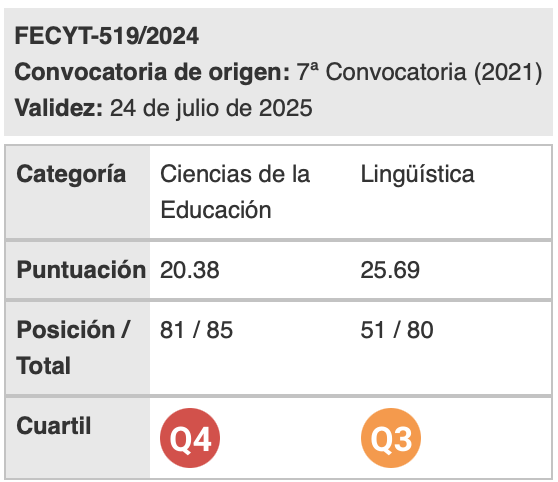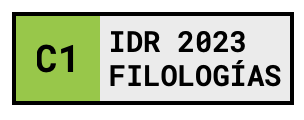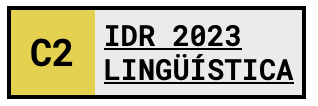Assessing the development of second language syntax in Content and Language Integrated Learning
Keywords:
CLIL, second language assessment, syntax, L2 proficiencyAbstract
This study examined the effect of the Content and Language Integrated Learning (CLIL) approach on the English proficiency and syntax of a group of Andalusian learners. High-school students (n = 22) enrolled in CLIL and non-CLIL classes in the same school (I.E.S. Mariana Pineda) took an English proficiency test adapted from the University Entrance Examination. Students were assessed for syntactic development in English using an Elicited Imitation (EI) task in conjunction with an experimental design based on the syntactic properties of English. Pre-intervention academic achievement, socio-economic status (SES), and gender were included as covariates in the analyses. CLIL students scored significantly higher than non-CLIL students on the syntactic task (p = 0.002) and the proficiency test (p < 0.001). Results revealed a significant positive correlation between the scores obtained in the proficiency test and the EI task for the CLIL group (p < 0.01), but not for the non-CLIL group (p = 0.39). These findings advance a methodology to assess the English syntax of CLIL students.
Downloads
Downloads
Published
How to Cite
Issue
Section
License
Authors who publish with this journal agree to the following terms:
- Authors retain copyright and grant the journal right of first publication with the work simultaneously licensed under a Creative Commons Attribution License that allows others to share the work with an acknowledgement of the work's authorship and initial publication in this journal.
- Authors are able to enter into separate, additional contractual arrangements for the non-exclusive distribution of the journal's published version of the work (e.g., post it to an institutional repository or publish it in a book), with an acknowledgement of its initial publication in this journal.
- Authors are permitted and encouraged to post their work online (e.g., in institutional repositories or on their website) prior to and during the submission process, as it can lead to productive exchanges, as well as earlier and greater citation of published work (See The Effect of Open Access).

Revista de Lenguas para fines específicos is licensed under a Creative Commons Reconocimiento-NoComercial-SinObraDerivada 4.0 Internacional License.

























